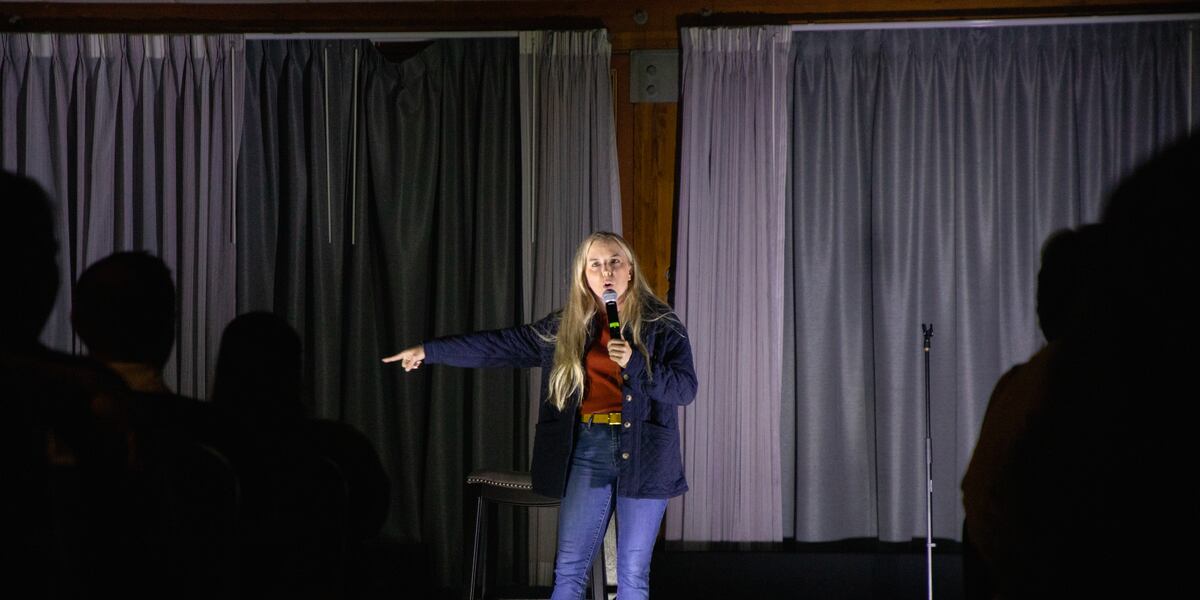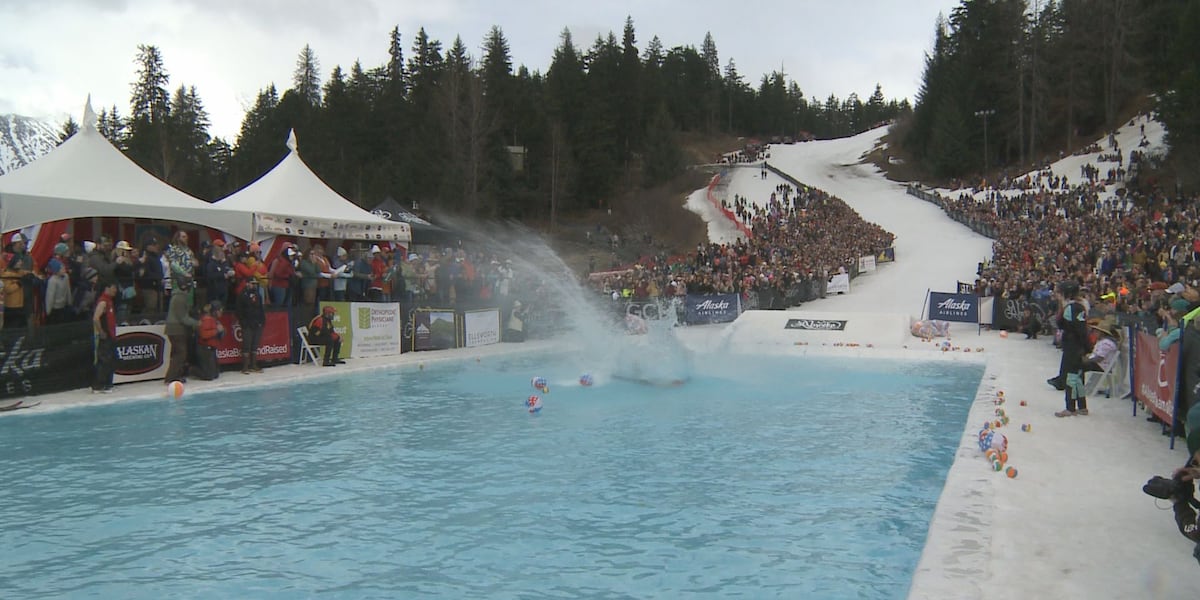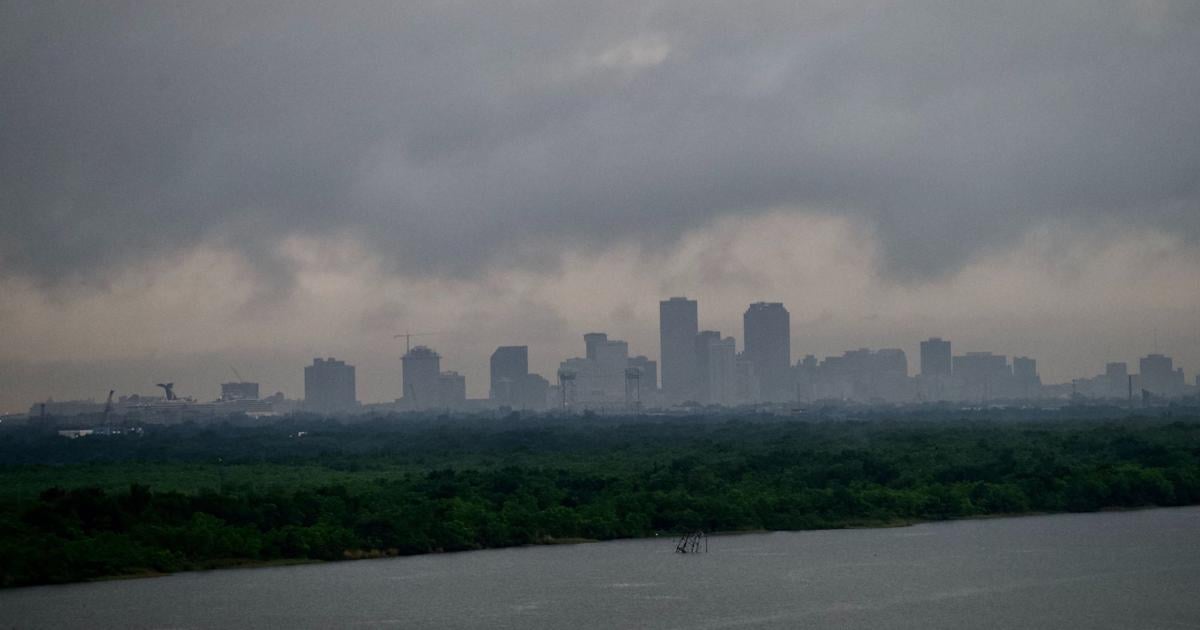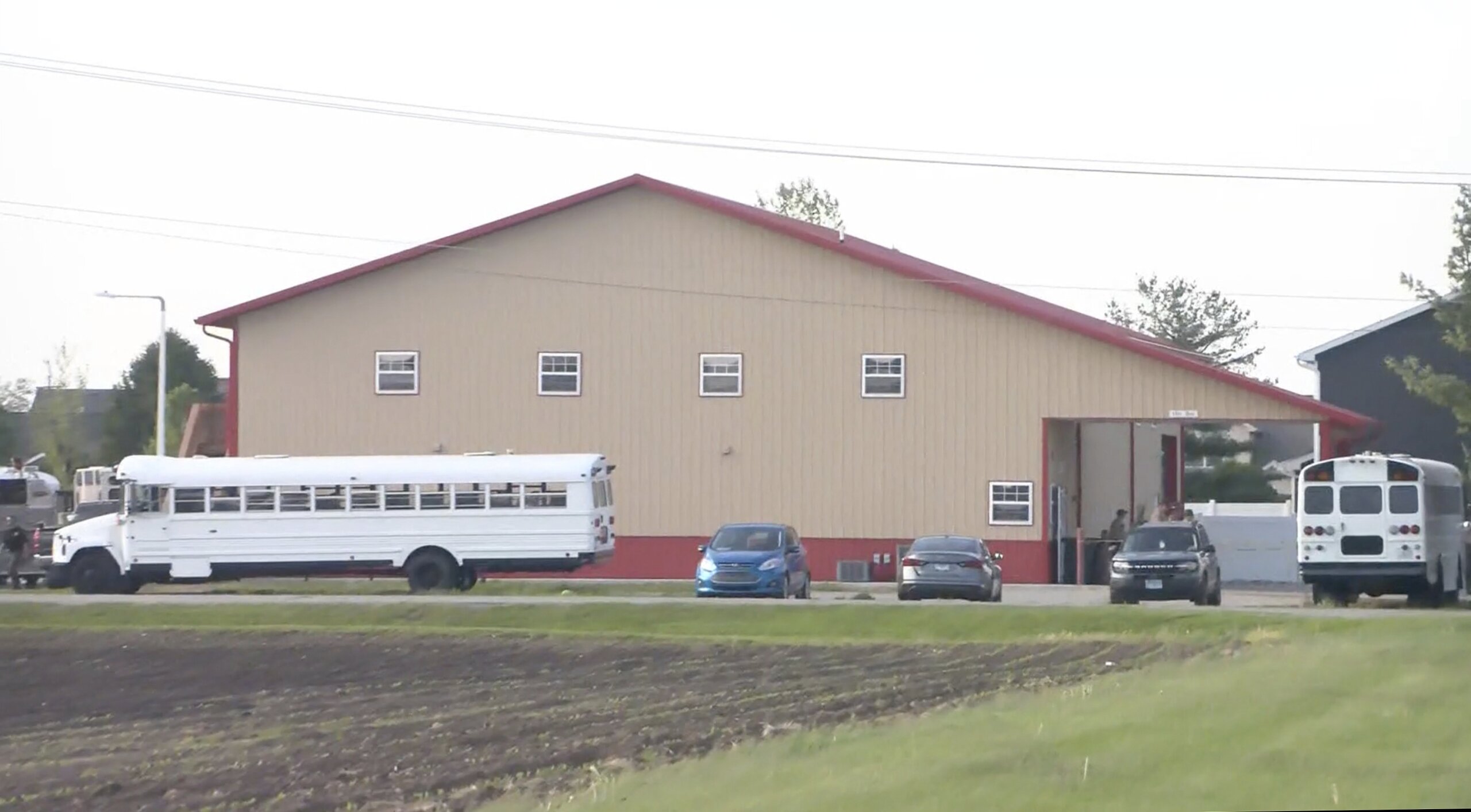Alaska
Former NOPD captain, now a police chief in Alaska, has assault case dismissed

An indictment charging a former New Orleans Police Department captain with assault in Alaska, where he took a job last year as a police chief, has been dismissed after a judge found prosecutors misled the grand jury.
Jeffrey Walls, the police chief in Ketchikan, Alaska, argued that he acted within his rights as a peace officer when he restrained and detained a man who had twice come to physical blows with him and his wife as they dined out last September.
Walls, who led the Eighth District in New Orleans before taking the Alaska job, was accused of felony third-degree assault and five misdemeanor counts. The felony charge was dismissed last week, according to court documents.
State prosecutors wrongly told a grand jury that an officer’s ability to use force while detaining suspects is limited to times when they are on duty, court documents show. Walls filed a motion to dismiss the indictment, and Superior Court Judge Katherine Lybrand granted it.
A City of Ketchikan investigation had undermined that the state’s case, which rested on “the allegation that Jeff placed Mr. Wildes in a chokehold for 2-3 minutes,” according to an Aug. 14 city memo.
“The State’s case is fiction and should be thrown out,” the memo reads. Ketchikan city officials did not respond to a request for comment.
State prosecutors could still try Walls for the misdemeanors: three counts of fourth-degree assault and two counts of reckless endangerment. It’s unclear if they will.
The brawl
The case stemmed from a scrap on Sept. 10, 2022, as Walls and another Ketchikan officer ate dinner with their wives while off duty at the bar of the Salmon Falls Fishing Resort.
Another patron, Matthew Wilde, collided with Walls’ chair, according to court documents. Wilde apologized and offered to buy the group a drink, which Walls declined. But later that evening, Wilde ran into the chairs of both Walls and his wife Sharon, knocking her to the bar and bruising her.
Jeffrey Walls pursued Wilde, knocked him into a stone wall, bloodying his head, and restrained him in a hold that he said was a headlock. State prosecutors claimed it was a chokehold that lasted up to three minutes, the city memo said.
Walls argued that he exercised a lawful, off-duty use of force and detainment while he waited for Alaska troopers to arrive and arrest Wilde.
Wilde was arrested five hours after the altercation with a blood alcohol concentration of .07%, according to a city memo. Police booked him on suspicion of assault, but prosecutors dropped the case, according to reporting by Alaska Public Media. On Dec. 29, Alaska prosecutors filed charges against Walls.
Photo by Frank Stansbury—New Orleans Police Department 8th District Commander Jeffrey Walls with burlesque star Trixie Minx at the Round Table Luncheon.
Tenure at NOPD
Walls arrived in Alaska in July 2022, just a few months before the scuffle, after 24 years with the NOPD. He’d most recently served as commander of the Eighth District, which includes the French Quarter and CBD. He moved to become top cop in Ketchikan, an island town of about 8,000 people with a cruise ship port terminal that brings in tourists.
Walls has been reinstated to his role as chief after being placed on administrative leave pending the outcome.

Alaska
Jessica Michelle Singleton is saying ‘Hi Y’all’ to Alaska

ANCHORAGE, Alaska (KTUU) – Jessica Michelle Singleton’s Alaska tour of her newest hour-long comedy special brought her back to her teenage stomping grounds in Anchorage.
Touring performers aren’t always frequent in Alaska, and Singleton admits even as a teenager, her heart didn’t yearn to stay in Alaska when she was a student at Service High School
“I break out into hives when I get too cold,” Singleton said.
She’s performed at comedy festivals in Alaska before, along with her credits as a paid regular at The Comedy Store in LA, two recorded albums, and shorter specials on Hulu and Peacock.
Past Alaska audiences haven’t disappointed her.
“Being from Alaska, when I did the festival because we didn’t do just Anchorage, we did Homer and Seward and people just packed out,” Singleton said. “We’re so excited and I think it’s also because they don’t get a lot of live stand-up comedy.”
Singleton said shortly after filming her first hour-long special, “Hi Y’all,” Jake Armstrong, an Alaskan comic approached Singleton with an idea for a local tour. Now in the midst a tour through the Milk Run, Singleton said she’s seeing different kinds of audiences than larger cities might offer.
″I love going into smaller cities and smaller towns on the road because everyone’s so much more pumped up, because they don’t take it for granted,” Singleton said.
“Last night, somebody drove 7 hours to see me in Skagway.”
Her newest special isn’t heavy on Alaska-related material, Singleton said most of “Hi Y’all” is focused on her childhood in southern Mississippi before her mom moved their family to Anchorage.
“We don’t have time for that. That’s gotta be the next special,” she said.
However, there is one clip she hopes to show at her Anchorage debut at Bear Tooth Theatrepub that was removed during the editing of the full special.
“There will be more [Alaska jokes] in future specials, but I have done some throughout the years, little chunks, and had a couple of clips go viral where I’m talking about Alaska.” Singleton said.
Thus far in her tour, Singleton has performed stand up for Alaska audiences in Ketchikan, Skagway and Juneau, but her April 27 debut in Anchorage will be a screening of the taped special followed by a Q&A.
Following the Anchorage debut, she’ll be back on the road in Talkeetna, Cordova, Fairbanks and Palmer.
Find details for Singleton’s tickets and tour dates here.
See a spelling or grammar error? Report it to web@ktuu.com
Copyright 2025 KTUU. All rights reserved.
Alaska
Another splashy year at Slush Cup 2025

ANCHORAGE, Alaska (KTUU) – A finale to the skiing season, Alyeska Resort’s splash zone was open for business at the annual Slush Cup skiing event.
Crowds flocked to a chilly pool at the end of the Christmas Run for the inaugural “idiot swim,” where audience members hopped into the water for a dip before slush skiers took over.
Dozens of skiers flew down the hill, graded on height, style, speed, tricks and their costumes following their landing in the water.
Skiers dressed as Bart and Homer Simpson, Puff the Magic Dragon, a butterfly, and even Jesus Christ were among some who competed in the day’s star event.
Saturday’s Slush Cup 2025 winners, based on their combined points, were:
1st Place: Cole Bridge
2nd Place: Hunter Kern
3rd Place: Joe Stahla
Honorably mentioned:
Best Crash: Truman Durand
Biggest Air: Tony Nacink
Best Costume: Michael Hansen
See a spelling or grammar error? Report it to web@ktuu.com
Copyright 2025 KTUU. All rights reserved.
Alaska
Alaska agency boosting gas line asks skeptical Legislature to consider investing up to $800M

JUNEAU — The state agency advocating for a $44 billion gas line in Alaska is asking the Legislature to consider investing up to $800 million in the long-sought but faltering megaproject.
There has been renewed interest in building an 800-mile gas pipeline from the North Slope since President Donald Trump announced his strong support for the project. Several Asian nations have shown an interest in investing in the pipeline and buying gas from Alaska, but no concrete deals have yet been signed.
Gov. Mike Dunleavy and Alaska’s three-member, all-Republican congressional delegation have been bullish on the Alaska LNG project. Some lawmakers have been equally optimistic, but multiple legislators said they remain skeptical that the pipeline will be built, particularly on the fast timeline touted by the project’s new private developer.
Frank Richards, president of Alaska Gasline Development Corp., told legislators this week about the upsides of the project. It has been fully permitted and is eligible for $28 billion in federal loan guarantees, he said.
Delegates from South Korea and Thailand are set to come to Alaska soon to study the project, AGDC officials said this week. Additionally, the Trump administration is urging leaders of several Asian nations to commit to the pipeline with representatives set to attend a June summit in Alaska, The New York Times reported.
[South Korea and other Asian countries plan visits to the state as they eye Alaska LNG project]
The renewed interest in the pipeline comes after AGDC — the state agency leading the project — announced in January that Glenfarne had signed on to become its lead developer.
The terms of AGDC’s deal with Glenfarne, a New York-based company, remain confidential. But AGDC told lawmakers this week that Glenfarne agreed to take a 75% stake in exchange for bringing the project to a final investment decision — a pivotal step in completing a megaproject.
Richards said Wednesday that Glenfarne had recently “suspended” calls for an Alaska development agency to provide $50 million as an insurance policy for remaining engineering and design work. Instead, Richards said Glenfarne would be willing to use private capital to complete that work, which is estimated to cost $150 million.
‘It is in our future’
In recent months, some lawmakers have been buoyed by the prospects for the project.
Anchorage GOP Rep. Chuck Kopp penned an opinion piece in the Daily News encouraging Alaskans to “shake the cynicism off.” Fellow Anchorage Republican Rep. Mia Costello introduced a legislative resolution that urges support for “the rapid advancement” of the pipeline.
“We really will be having a gas line. It is in our future,” Costello said at a Tuesday media conference.
Still, multiple lawmakers said while they support the pipeline, they have lingering doubts and questions. Some legislators have been skeptical about the project’s costs and timelines; others have questioned why Glenfarne, a relatively new player in the oil and gas sector, was chosen as the lead developer.
Richards said other offers were discussed, but Glenfarne got the tick of approval from AGDC’s board and investment bank Goldman Sachs.
Some lawmakers have bristled at what they say is the Legislature’s limited oversight of the project.
In 2014, the Legislature approved Senate Bill 138, which granted AGDC broad authority to develop the pipeline.
Republican former House Speaker Mike Chenault, a current AGDC board member, said the agency’s independence was by design. He said that gives AGDC the ability to make decisions in a timely matter.
“I believe that if the Legislature gets involved, that this project will go away,” he said.
With Southcentral Alaska facing a looming shortfall of natural gas from Cook Inlet, the pipeline has been touted as a way to secure gas supply for Alaska in the long term. But the project is also being discussed as a way to fill state coffers.
Officials at AGDC said the state’s current stake in the project could potentially raise hundreds of millions of dollars per year in new revenue, but that is still set to be negotiated with Glenfarne and any other potential investors.
There is an opportunity for Alaska to invest substantially more in the project to collect more revenue for the state, Richards said.
“The big question for the state of Alaska going forward is really going to be around that equity financing,” he said Wednesday to a joint legislative committee.
The project has recently been split into phases. The first phase would see an 807-mile gas pipeline built from the North Slope to Nikiski. The second phase would see plants built to treat gas and prepare it for export.
Richards told lawmakers that the state, Alaska Native corporations, Alaska businesses and individual Alaskans could invest up to 25% in those subprojects. For the pipeline, that would cost roughly $800 million. For the pipeline and two plants, the cost would be over $3.5 billion, AGDC board members said earlier in the month.
The Legislature is currently grappling with strained revenue and a dire fiscal outlook, making it unlikely that it could fund the 25% stake in the pipeline, lawmakers said.
Anchorage Republican Sen. Cathy Giessel said that she had heard little interest from lawmakers for the state to put “money into this project.” Giessel, chair of the Senate Resources Committee, said “$800 million, of course, is an absurd amount.”
Timing, tailwinds and wariness
Project timelines have also been greeted with skepticism by veteran legislators.
Richards told lawmakers this week that a final investment decision could be reached by the end of the year. A pipeline could be constructed and delivering gas for Alaskans by 2030 or 2031, he said.
During a joint legislative committee hearing, House Speaker Bryce Edgmon said that there seemed to be “missing key ingredients” in answers to legislators’ questions from AGDC. Edgmon, a Dillingham independent, suggested that the 2031 timeline seemed “more aspirational than it is reality.”
The costs of the project have also come under scrutiny. The full gas line project was estimated in 2023 to cost $44 billion, AGDC board members said. The pipeline itself was expected then to cost just under $11 billion.
Rep. Zack Fields, D-Anchorage, said that the trans-Alaska pipeline was completed in 1977 at a cost of $8 billion. He said that the gas pipeline is expected to cost 37% more than TAPS, but that inflation has increased prices more than five-fold over the past 48 years.
Fields asked how that cost estimate for the gas pipeline could be “plausible.”
Warren Christian, an AGDC board member, said the project’s costs were carefully calculated by ExxonMobil.
An updated cost estimate is expected after engineering and design work is completed, AGDC officials said.
While pipeline discussions continue, concrete plans have been advancing to import gas for Southcentral Alaska. Gas line boosters said the project could be a viable long-term fix for the state’s energy needs.
Veteran legislators say they’ve heard that before.
Anchorage Democratic Sen. Bill Wielechowski said there seemed to be some positive “tailwinds” behind the project, citing interest from the Trump administration and in Asia. But Wielechowski estimated this was the eighth version of the pipeline he’s heard pitched during his 18-year tenure in the Legislature.
“I’m a bit wary at this point, just based on promises we’ve heard in the past,” he said. “New administrations, new people come in and it sounds great, and then, for whatever reason, it just doesn’t work.”
As an example, he pointed to TransCanada. In 2008, the Legislature approved paying up to $500 million for the Calgary-based company to help with pre-construction costs. Seven years later, the Legislature appropriated $64 million to buy out TransCanada’s stake in the project.
Wielechowski said the state should consider investing in the pipeline to raise more state revenue for Alaska. But echoing many in the Capitol, he remained somewhat doubtful the project would come to fruition.
“I want it to happen. I share the sentiment that I think many Alaskans share — I’ll believe it when I see it,” he said.
-
News1 week ago
Harvard would be smart to follow Hillsdale’s playbook. Trump should avoid Biden’s. | Opinion
-

 Politics7 days ago
Politics7 days agoVideo: Hegseth Attacks the Media Amid New Signal Controversy
-

 Culture5 days ago
Culture5 days agoNew Poetry Books That Lean Into Calm and Joy Amid Life’s Chaos
-
Business1 week ago
Porto's Bakery moving forward in Downtown Disney, replacing Earl of Sandwich
-

 Politics1 week ago
Politics1 week agoSupreme Court blocks new deportations of Venezuelans in Texas under 18th century Alien Enemies Act
-

 News1 week ago
News1 week agoMaps: Where Do Federal Employees Work in America?
-

 Technology1 week ago
Technology1 week agoPete Hegseth reportedly spilled Yemen attack details in another Signal chat
-

 Politics1 week ago
Politics1 week agoPope Francis and US presidents: A look back at his legacy with the nation's leaders




















